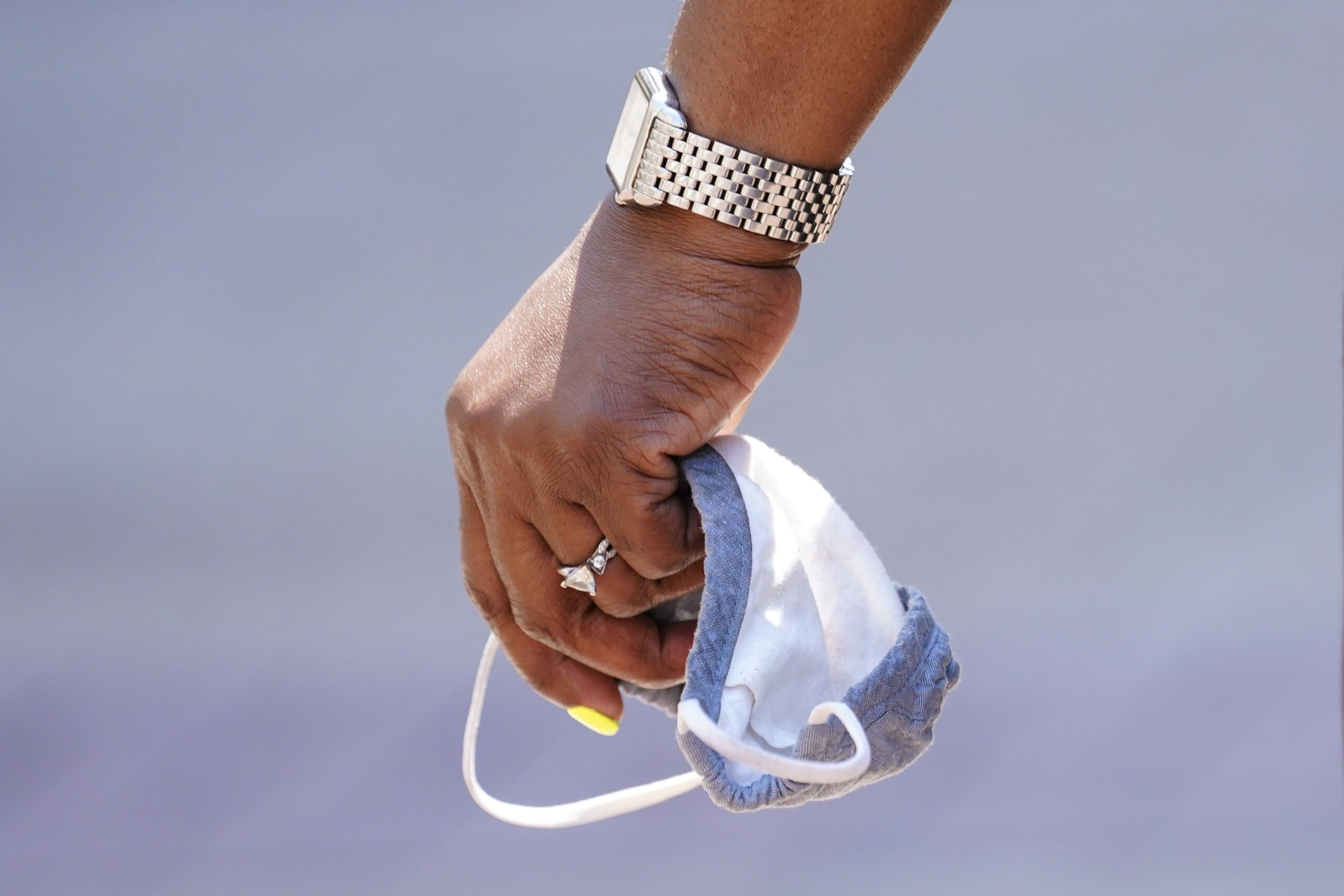People vaccinated against COVID-19 who then get infected can still have as contagious a viral load as those who are unvaccinated.
That’s according to three authors of a new COVID-19 study in Wisconsin released this week.
They say even with vaccines, precautions like masks and social distancing still help cut down on infection risks.
News with a little more humanity
WPR’s “Wisconsin Today” newsletter keeps you connected to the state you love without feeling overwhelmed. No paywall. No agenda. No corporate filter.
Katarina Grande is the COVID-19 data team lead for Public Health Madison & Dane County. She’s also a study author.
“Vaccination’s (the) No. 1 thing, for now and for whatever is coming at us in the future, around the corner with this virus,” said Grande.
Grande said she has empathy for people struggling with changes in pandemic guidance. She says studies like this can help people continue to adjust.
“We’re really lucky locally here to be studying this so closely that we’re able to get out the most recent discoveries and research really as fast as possible,” said Grande.
Thomas Friedrich is a professor of virology at the University of Wisconsin-Madison, and another study author. He said vaccination, while extremely effective, is not necessarily a magic shield.
“This does not indicate that the vaccine is not effective,” said Friedrich. “What it does mean is that in some people who are vaccinated — at least for a certain amount of time after infection — there’s enough virus around in their systems that they could pass the virus on to others.”
The study also found nearly all cases of COVID-19 in Wisconsin now involve the delta variant.
Friedrich said the virus itself is going to continue to change.
“I think what’s very unsurprising for scientists is that our understanding is going to continue to evolve,” said Friedrich. “This is a brand new virus that, you know, we didn’t know anything about two years ago, and we’re still finding out more about it.”
He said vaccines and masks, along with other prevention measures, cut back opportunities for COVID-19 to evolve.
“The most important thing, I think, is feeling a sense of responsibility toward the most vulnerable members of our community who aren’t yet vaccinated,” said Friedrich. “We can’t assume just because we’re vaccinated that there is no way that we could carry infection to them.”
Dave O’Connor, also a UW-Madison professor of virology and the third co-author of the study, said it’s important to continue to recalibrate expectations as circumstances change.
“The vaccines are imperfect, but they’re still going to help keep me out of the hospital right now, and we should be really thankful for that,” said O’Connor. “But we also need to be on guard, because just because we might be done with the virus doesn’t mean the virus is done with us.”
O’Connor said while the vaccines aren’t perfect, they do what they need to do.
“There really is a concern that if we say things that are negative about the vaccines or express and acknowledge uncertainty, we’re going to discourage people from getting vaccinated,” said O’Connor. “The vaccines … are spectacularly good right now, but we have to have the humility to acknowledge that we don’t know if that’s going to be the case forever.”
O’Connor said even the progress made in research has only scratched the surface of a disease he said was here to stay.
“We have not even started scratching the surface of what we need to know in order to reach a stable equilibrium with it,” said O’Connor. “You’ve got to look up and see that it’s going to be a huge, long hike to the top.”
Grande said even with the results of the study in mind, areas such as Dane County that have high vaccination rates are still well-positioned against hospitalizations and deaths.
“I caution against a lot of scary thoughts about what’s to come,” said Grande. “I think really, really focusing on increasing vaccination coverage even more and adding that extra layer of masking is really important right now.”
The new study follows in the wake of a CDC study with similar results. That study focused on a single outbreak. The new Wisconsin study looked at COVID-19 samples from across the state.
The Wisconsin study has not yet been peer reviewed. Publishing scientific articles online prior to peer review has become a more common practice during the COVID-19 pandemic.
Wisconsin Public Radio, © Copyright 2025, Board of Regents of the University of Wisconsin System and Wisconsin Educational Communications Board.






